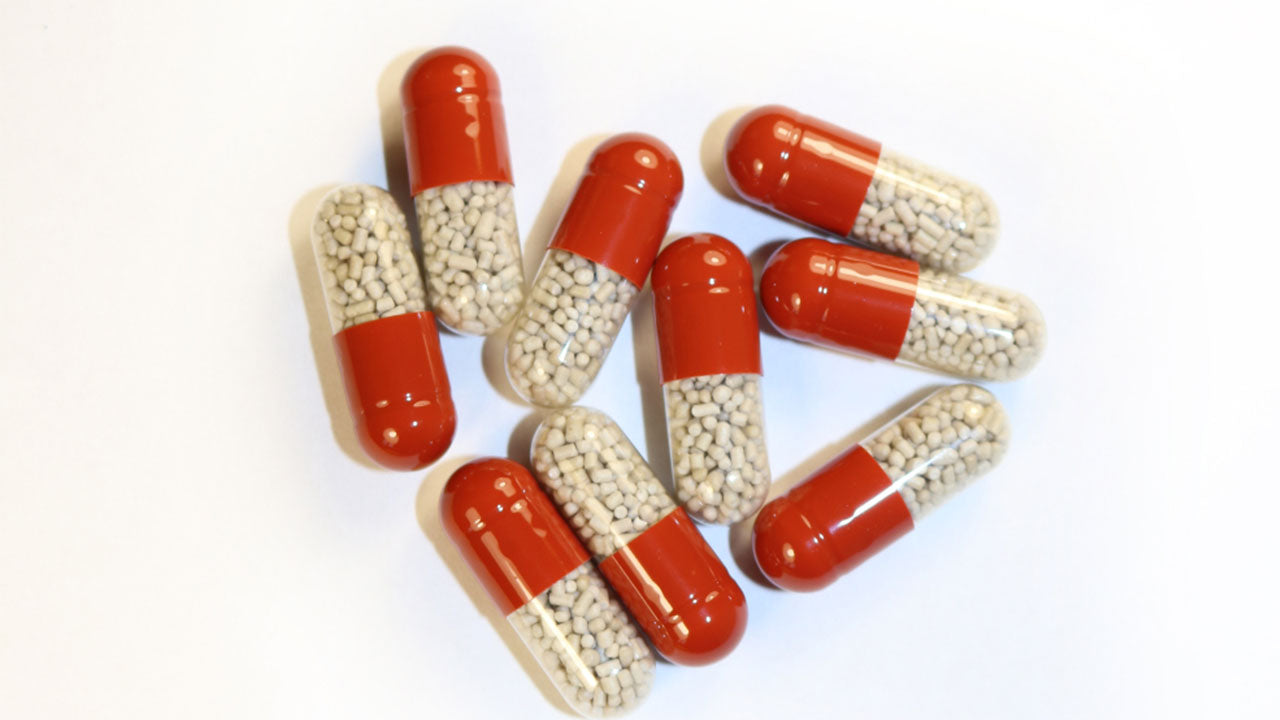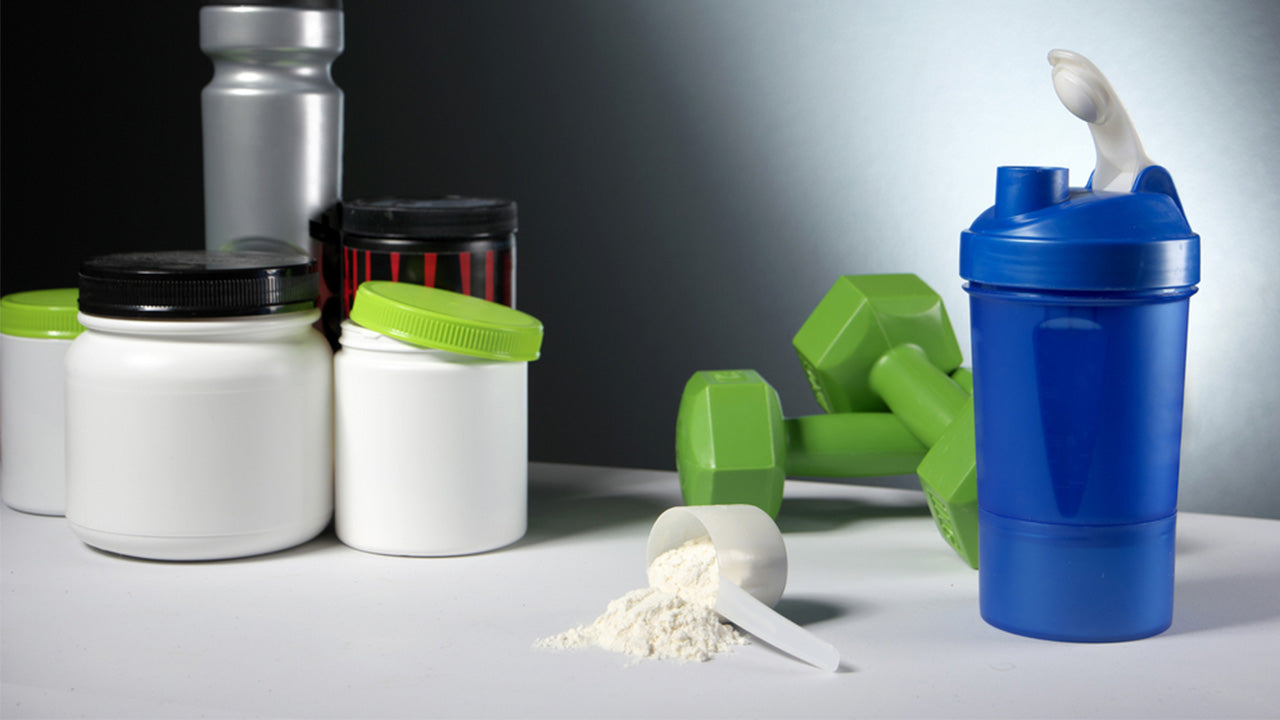Pancreatin: Uses, Side Effects and Potential Drug Interactions
 By: by Amino Science
By: by Amino Science

Pancreatin, also called pancrelipase and pancreatic enzymes, is a mixture of digestive enzymes used to supplement the body's natural supply of such enzymes. Under normal circumstances, the pancreas produces all the digestive enzymes necessary for breaking down fats, proteins, and carbohydrates from the food you eat. However, certain conditions—including cystic fibrosis, chronic pancreatitis, and pancreatic cancer—can impede the pancreas's ability to carry out that vital function, resulting in malabsorption.
Here's what you should know about what pancreatin is and how it works, the conditions it's been shown to effectively treat, side effects associated with its use, and potential drug interactions.
What Is Pancreatin?
To prevent malabsorption and ensure full, efficient digestion, three essential enzymes are needed: amylase, lipase, and protease. Most pancreatin products are made using enzymes extracted from the pancreases of pigs—you may see these termed porcine pancreatic extract or porcine pancreatic enzymes. In some cases, the pancreatic enzymes come from the pancreases of cows—the key term to look for here is bovine.
The medical use of pancreatin dates back to the 1800s at least. It now appears on the World Health Organization (WHO)'s List of Essential Medicines, which evaluates the effectiveness, safety, and cost-effectiveness of various medicines, then determines which should be considered essential to health care systems around the globe. Pancreatin is currently available both by prescription and as a supplement—in 2019, more than one million prescriptions were written in the United States alone.

4 Proven Uses for Pancreatin
Studies support the use of pancreatin for a number of medical conditions, all of which somehow affect either the pancreas or fat digestion.
1. Pancreatic Insufficiency
The most common use for pancreatin is to treat digestive problems related to disorders of the pancreas. This is sometimes referred to as pancreatic insufficiency.
According to an article published in BMC Medicine in 2017, the most common causes of pancreatic insufficiency are:
- Chronic pancreatitis
- Cystic fibrosis
- History of extensive necrotizing acute pancreatitis
- Pancreatitis (swelling of the pancreas)
- Pancreas removal
Researchers have conclusively determined that taking pancreatin improves the absorption of fat and protein and raises energy levels.
Pancreatic enzyme treatments historically had varying levels of efficacy, but since the Food and Drug Administration (FDA) put regulations in place for all prescription formulations in 2010, they have become quite reliable. Studies show they can treat abdominal pain, malnutrition, steatorrhea (pale, oily, foul-smelling stools), and weight loss, and that they may even be able to improve an individual's overall quality of life.
2. Nonalcoholic Fatty Liver Disease
Nonalcoholic fatty liver disease (NAFLD) is a condition characterized by the accumulation of fat in the livers of individuals who drink little or no alcohol. In some cases, this condition develops after individuals have the pancreas removed. Studies indicate that taking pancreatin may help to treat or prevent NAFLD in those individuals.
Findings published in the Journal of Hepato-Biliary-Pancreatic Sciences showed that treatment with pancreatin could significantly improve liver fat levels among patients who developed NAFLD after having their pancreases removed. Analysis also revealed improvements to liver function, digestion, and blood levels of proteins, albumin, and cholesterol.
It's important to note, however, that pancreatin comes with its fair share of side effects. Taking supplemental essential amino acids has also been shown to help improve liver fat levels with no adverse side effects. To find out more about amino acid benefits for the liver, read this article.
3. HIV/AIDS
Individuals with HIV and AIDS sometimes have difficulty digesting fat. Preliminary findings indicate that taking pancreatin might improve fat digestion for those individuals.
According to a retrospective analysis published in HIV Medicine, 104 out of 233 patients showed signs of pancreatic insufficiency. Pancreatin proved to be an effective treatment for symptoms of pancreatic insufficiency, such as steatorrhea, in a majority of patients.
4. Pancreatic Cancer
Issues with digestion can occur for certain individuals with pancreatic cancer, resulting in unwanted weight loss. According to some studies, pancreatin can lead to beneficial weight gain for individuals with pancreatic cancer. Other studies, however, were unable to locate any evidence that pancreatin leads to weight gain, improved nutritional status, or increased rates of survival for pancreatic cancer patients.
These divergences may be because pancreatin only helps individuals with underlying pancreatic enzyme issues, which can be difficult to differentiate from the physiological manifestations of pancreatic cancer as well as the side effects of pancreatic cancer treatments.
The Pancreatic Cancer Action Network (PanCAN) recommends that patients experiencing signs of pancreatic insufficiency discuss the use of pancreatin with their medical team. Those symptoms include:
- Indigestion
- Stomach cramps after eating
- Gas
- Frequent, loose stools
- Weight loss
Best Practices for Taking Pancreatin
When discussing the use of pancreatin with your doctor, be sure to disclose if you have allergies to pork proteins. If you have any other allergies, asthma, or gout, that's also important information for your doctor to have.
The FDA has classified pancreatin in pregnancy category C, meaning it's possible it may have an adverse effect on a fetus, but the potential benefits might outweigh the risks. Pregnant women should be sure to seek medical advice about possible side effects from a trusted source before taking pancreatin. Since it's also possible pancreatin can pass into breast milk, nursing mothers should do the same.
General Dosing Recommendations
Be sure to follow the instructions given by your doctor or provided on the label for the pancreatin product you chose. If your doctor adjusts your dose, stick to that dosage and be sure to discuss any desired changes with your doctor rather than trying them out on your own.
That said, scientific research on the use of pancreatin can be used to extrapolate some general guidelines, which vary based on the targeted condition.
For pancreatic insufficiency, doses are measured in units of lipase—one of the enzymes in pancreatin that's required for proper metabolism. A typical starting dose would be between 500 and 1,000 lipase units per kilogram (kg) of body weight, taken with each meal. The high end of the range would be 2,500 lipase units/kg at each meal. Amounts in excess of that should only be taken if a physician has deemed it medically necessary.
For NAFLD, the most studied option is a specific, delayed-release prescription pancreatic enzyme drug that's sold in the United States under the brand name Creon. Research supports the use of a daily 1,800-milligram dose for a duration of 6-12 months.
Expert Tips to Minimize Side Effects and Maximize Results
Experts advise always taking pancreatin with food (either meal or snack will work), in part because doing so mimics the way the body naturally releases endogenous pancreatic enzymes. It's advisable to drink an entire glass of water with your dose of pancreatin too.
Always take pancreatin tablets whole. Do not pulverize the tablets, break them into pieces, or chew them. Swallow each tablet promptly and avoid holding it in your mouth, as that may cause irritation to the sensitive tissues there.
Plan ahead to avoid running out of this important medication—call in for a prescription refill before you take your last dose. If you do miss a dose, take that dose as soon as you realize you missed one. If it's nearly time to take your next dose, refrain from making up the dose missed previously. Never take a double dose.
If you're using prescription pancreatin, keep in mind that changes to the brand, strength, or type may affect the dose you take. Be sure to speak with your doctor or pharmacist about any questions you have related to medication changes.
Pancreatin does not need to be refrigerated. It should be stored at room temperature in a cool, dry location.
Unless instructed to do so by your prescribing physician, do not take any other digestive enzymes while using pancreatin. You should also refrain from taking antacid medications both an hour before and an hour after each dose of pancreatin.

Watch for These Possible Side Effects of Pancreatin
The FDA has determined the oral use of pancreatin to be "likely safe" when supervised by a health care provider. That said, it can cause side effects.
Common side effects include:
- Dizziness
- Changes to blood sugar levels (both increases and decreases)
- Stomach pain
- Gas
- Unusual bowel movements
- Nausea
- Minor skin rash
However, the FDA has categorized taking pancreatin in doses that exceed those prescribed by your doctor as possibly unsafe, in part because it appears doing so makes you more likely to develop a rare bowel disorder.
If you experience more severe side effects, you should contact your doctor immediately. Watch for:
- Intense nausea
- Vomiting
- Joint pain and swelling
- Pronounced changes to baseline symptoms
If you show signs of an allergic reaction, you should seek immediate medical help by calling 9-1-1 or going to the emergency department at the nearest hospital. Indicators of an allergic reaction include:
- Labored breathing
- Facial swelling
- Swelling of the lips, tongue, or throat
- Hives

Be Aware of These Potential Drug Interactions
As is true of nearly every bioactive substance you ingest, it's possible for pancreatin to interact with other prescription and over-the-counter medicines as well as vitamins, supplements, and herbal products. If you're taking prescription pancreatin, be sure to discuss with your doctor all other medicines, vitamins, or supplements you currently take.
One drug that's known to interact poorly with pancreatin is acarbose (sold under the brand names Precose and Prandase). This drug helps to treat type 2 diabetes by slowing the rate at which the body metabolizes food. Because pancreatin helps the body break food down more efficiently, it can decrease the efficacy of acarbose.
Conclusion
Pancreatin is a mixture of digestive enzymes—specifically, amylase, lipase, and protease. It has a well-established history of use as a treatment for pancreatic insufficiency, a condition that can be caused by cystic fibrosis, chronic pancreatitis, and pancreatic cancer, among other health disorders.
Studies show that taking pancreatin addresses symptoms of pancreatic insufficiency such as:
- Abdominal pain
- Malnutrition
- Steatorrhea (pale, oily, foul-smelling stools)
- Weight loss
By doing so, it can significantly improve an individual's overall quality of life.
Pancreatin is available as prescription and over the counter. It's important to follow the dosing instructions provided by your doctor or on the label of the product you chose. If you experience severe side effects, contact your health care practitioner immediately. If you show signs of an allergic reaction, seek emergency medical attention.
Because pancreatin can interact with other medications—prescription, over-the-counter, and herbal—it's important to speak with a doctor to avoid unforeseen interactions.

Up to 25% off Amino
Shop NowTAGS: supplements
Join the Community
Comments (0)
Most Craveable Recipes




 833-264-6620
833-264-6620



















